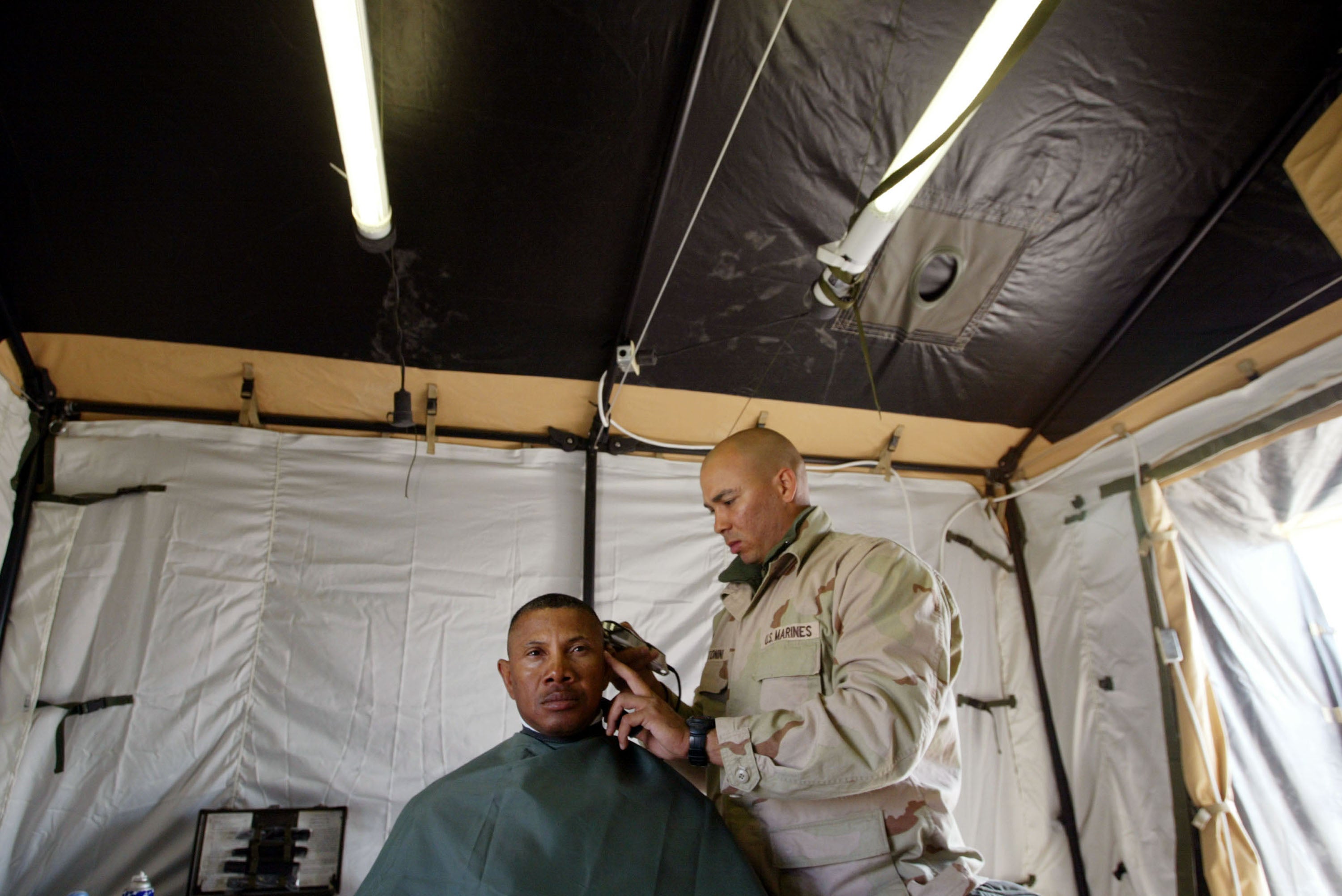
The US Marine Corps is eliminating waivers that previously allowed service members who suffer from razor bumps to forgo shaving — an action critics say disproportionately affects Black men.
The US military requires all male service members to be clean-shaven. However, the military introduced shaving wavers in the 1970s to address genetic skin conditions like pseudofolliculitis barbae, better known as razor bumps or ingrown hairs.
Now, thanks to guidance issued in March, men with a PFB or ingrown hair diagnosis could be expelled from the Marines if the issue continues.
Aimed at enhancing Marines' "warfighting capability," the guidance states that service members with PFB must undergo a medical evaluation within 90 days.
If their condition doesn't improve within a year following a four-step treatment plan, Marines with PFB may be discharged with an honorable discharge for "incompatibility with service" at their commanding officer's discretion, Jacoby Getty, a spokesperson for the Corps' Manpower and Reserve Affairs, told Military.com in March.
The recent policy update under Brig. Gen. David R. Everly reversed a 2022 rule that prevented Marines from being discharged solely due to the skin condition.
Over the past three years, service members could receive temporary or permanent shaving waivers or “no shave chits” if their PFB was unresponsive to topical treatments.
PFB affects up to 60 percent of Black men, the highest rate among all groups, according to the American Osteopathic College of Dermatology. People with PFB can experience painful bumps, itching, and even scarring after shaving.
There is no cure for PFB, but laser hair removal is the most effective long-term solution, according to the US Pharmacist.
Black service members represent roughly 15 percent to 16 percent of the active-duty force, yet they account for 66 percent of those holding shaving waivers, Military.com reports.
Critics of this guidance, including an active military dermatologist who agreed to remain anonymous while speaking with NBC News, said this rule has “nothing to do with readiness.”
“On its face, it’s a racist policy, because this is a condition that impacts African Americans and other people of color predominantly just by the nature of hair growth on the face,” the dermatologist said in an article published on May 24.
Earlier this year, the US Air Force also revised its guidelines on PFB, announcing that shaving waivers will end 90 days after an airman's next annual medical evaluation, though the criteria for continued eligibility remain unclear.

Air Force veteran Ed Anderson, 70, told NBC News that he views this move as another example of the “ongoing attacks” on diversity, equity, and inclusion efforts within the federal government.
“It’s mostly soldiers of color who are impacted by this,” Anderson told the outlet. “I don’t see this as a productive and effective means of retaining and recruiting troops.”
It’s unknown how many Marines the new policy will impact, as the service does not keep centralized records of those with PFB shaving exemptions, Getty said.
Duck Dynasty patriarch and conservative cultural icon Phil Robertson dies
The US military spent $6 billion in the past 3 years to recruit and retain troops
Israeli strikes kill 23 in Gaza, including journalist and rescue service official
Trump pledges to eliminate ‘drag shows and any woke agenda’ in US military
Trump pauses student visa applications to expand social media screening: report
Fraudsters are using ingenious hacks to pay lower tariffs on overseas products







